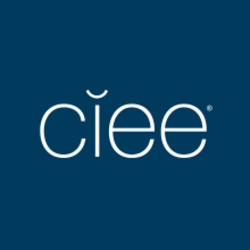College Admissions in the Age of AI
Artificial intelligence (AI) is everywhere. You’re likely seeing it mentioned on the news and social media; it’s probably even been a topic in your classes or school assemblies. But there’s also a lot of misinformation about AI and, you guessed it, that can have dangerous implications for your college application.
We’ll take a closer look at how college admissions and online applications in general are evolving in the age of AI as you prepare for the process yourself.
Is AI Ethical?
Let’s start with the big picture first: What is AI really, and is it ethical?
AI is a technology that allows computers and machines to simulate human intelligence. For example, it enables human functions like problem-solving, interpreting speech, playing games, and identifying patterns.
Generative AI, a form of AI, has been the topic of recent headlines, and is affecting schools, and more, worldwide. Generative AI can generate text, images, or other data using generative models, often in response to prompts. One of the most controversial forms of generative AI is ChatGPT.
ChatGPT was created with large language models, also known as language-related data, to be able to create written thoughts or conversations based on topic and level of detail, format, length, style, and language.
As you likely already know, users can send a prompt to ChatGPT, give it specific directions, and it will generate the content you request. Generative AI is also popping up in other industries, especially in healthcare.
While it may seem like a sudden, new technology on the rise, some AI has been used for decades. AI can be as simple as a computer game like checkers; remember, this is a technology that allows computers and machines to simulate human intelligence, like playing games.
Now, back to our first question: is AI ethical? The short answer is that… it’s complicated. While some AI technologies have helped create more efficient systems and led to significant progress across industries, some AI implications are troublesome. Many global leaders and prominent scientists are concerned about the impact of generative AI – what does it mean for human creativity? For privacy? Bias, disinformation, and more?
Exhaustive debates are happening about AI’s ethical implications, but before we get in over our heads, let’s cover exactly what AI means for you in the college admissions process.
For starters, keep in mind that ChatGPT is a slippery slope in academia. Some students may be abusing ChatGPT and entirely relying on it to help them complete their academic work, like essay writing, exams, and more. Trusting ChatGPT is dangerous territory. Much research has shown that ChatGPT can generate disinformation; it won’t always answer prompts correctly.
Plus, if you entirely rely on ChatGPT to help you through academic work, you’re doing yourself a disservice – the more you depend on a piece of technology to do your thinking for you, the more you’ll struggle when it comes time to do it on your own. And this counts toward the college admissions process, too. You also risk that you won’t come across as your authentic, unique self and stand out amongst your peers. Which brings us to our next heads up.
Do College Admissions Check for AI?

Yes, college admissions teams do check for AI, especially when it comes to the personal essay and supplemental writing prompts.
College admissions teams use your application to get to know you. And one of the main ways they get a glimpse into your life and personality is through your writing. Your high school transcript certainly doesn’t demonstrate as much about you as your personal essay does!
If you’re using an AI tool like ChatGPT to answer personal prompts, college admissions teams won’t get to know you. Not only will your writing style and tone of voice evaporate, you also can’t trust ChatGPT to describe your personal life and truly explain obstacles you may have faced, lessons you’ve learned, and influential people who have helped shape you.
Read More: What Is the Most Important Factor in College Admissions?
How Do College Admissions Check for AI?
“What AI detector do college admissions use?” It depends. Some college admissions teams use AI-detection tools that can identify specific patterns and compare them to existing content. Remember, ChatGPT generates content that blends other data points and existing information, so sometimes the technology repeats itself or provides similar information to different users. Talk about getting lost in the crowd.
College admissions teams are also made up of trained professionals who closely examine all aspects of college applications, so they are well-suited to see if something looks disingenuous. Detecting ChatGPT content is becoming a skill not only in college admissions and academia, but in the professional world too – various clues and patterns in the content alert reviewers.
Our advice? It’s better to be safe than sorry. While you can turn to technology if you need inspiration, don’t entirely rely on AI or ChatGPT to write your personal college application essay, or more, for you. You’re much better off being yourself and attempting it on your own than getting caught trying to pass something off that’s not your own.
Better yet, if you’re really feeling stuck when it comes to the writing portions of your college application, lean on your support system to help you. Seek out teachers or your high school guidance counselor for advice; your family and even your friends can help inspire your writing. And believe it or not, you can use ChatGPT as a tool (not the entire solution) to help, too.
Check out some ethical ways you can utilize ChatGPT to help steer you in the right direction:
- Generate ideas and brainstorm: Ask for a list of additional writing prompts or topics if you’re having difficulty getting started.
- Understand complicated topics: Try asking for definitions or more context about specific issues if you’re confused or overwhelmed by your writing prompts.
- Summarize research: If you’ve discovered some research that you’d like to include in your writing, ask ChatGPT for a quick summary to help you dissect it faster.
- Analyze sentiment and tone: Ask ChatGPT to analyze the sentiment and tone of your writing if you’re unsure and want an additional review.
Here’s the bottom line: College admissions teams can’t learn about you from a computer; try your best to complete your college application on your own so you can really impress them.
CIEE Admissions Teams

Whether you’re heading straight to college after high school or considering a CIEE study abroad program for high school graduates, you’ll need to submit an online application. Our admissions teams at CIEE want to get to know you, too!
If you’re struggling with anything on your CIEE application, we offer personal support and understand that enlisting some additional guidance (whether human or computer) might be needed. As with the college admissions process, we suggest utilizing different resources as tools for help on your application, not something to rely on entirely.
We want to know you and your motivations for participating in something like CIEE Gap Year Abroad or CIEE First Year Abroad. Are you passionate about other cultures? Have you always dreamed of going to Japan? Or Australia? Tell us what excites you; we guarantee you won’t need AI for assistance.
The college landscape and the many emerging technologies are always evolving, but one thing remains true: you deserve an application, a college experience, and a study abroad program as unique as you! You got this.

